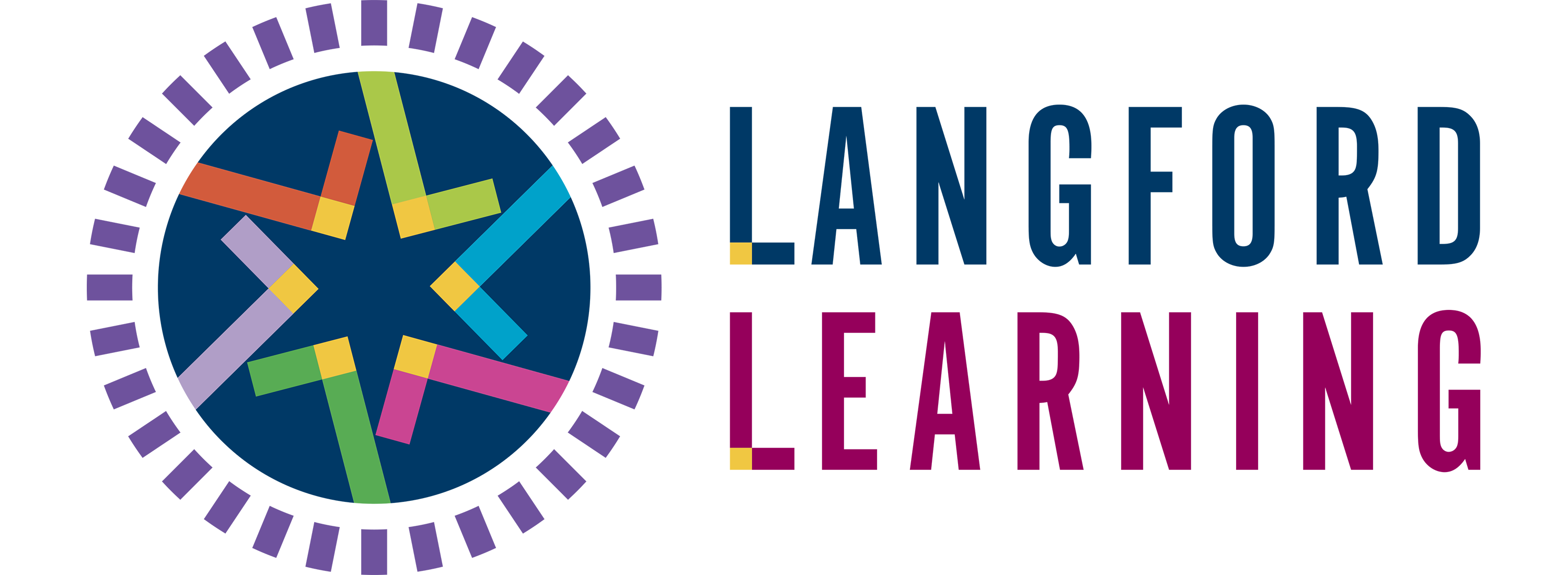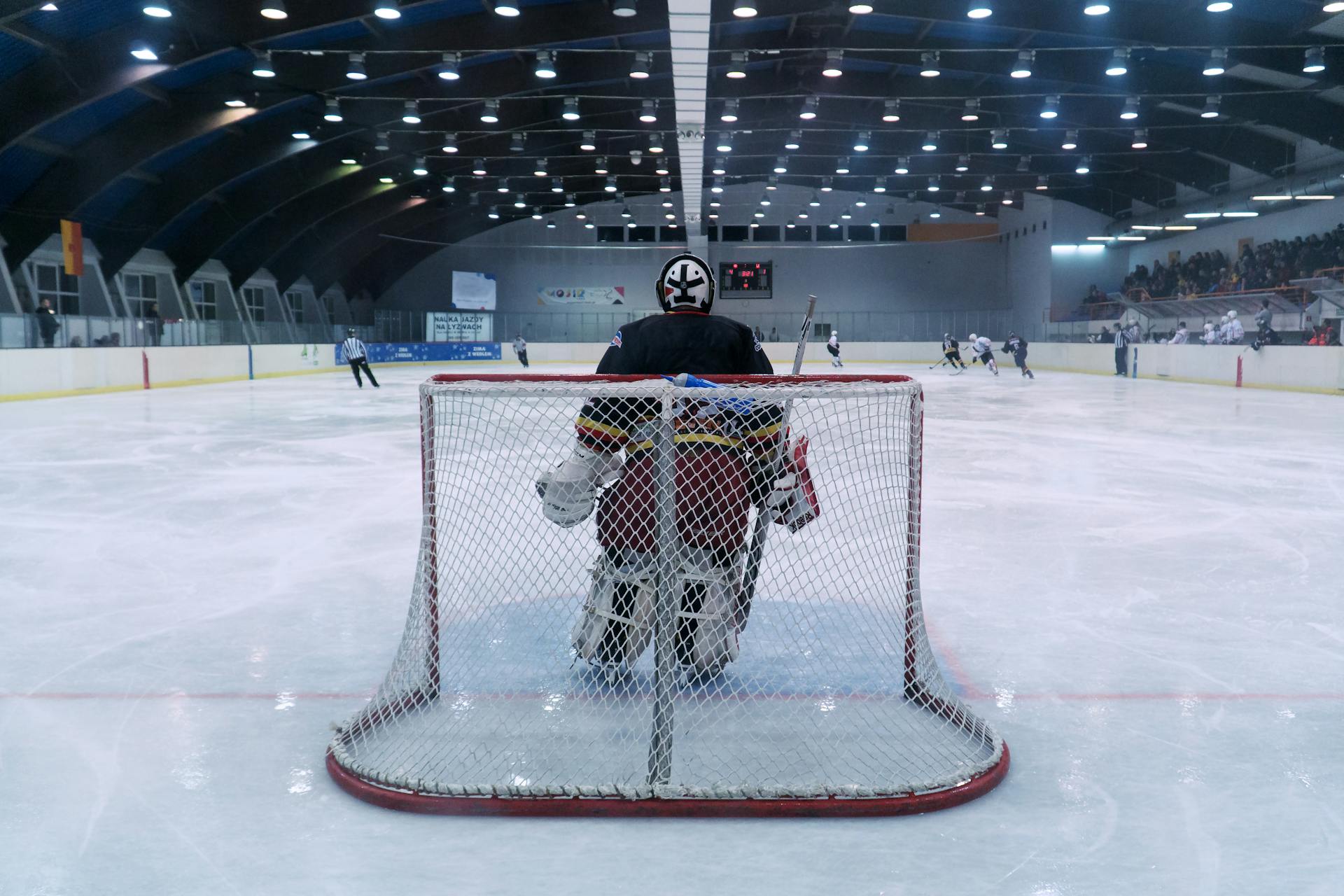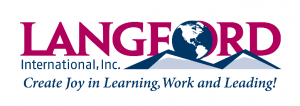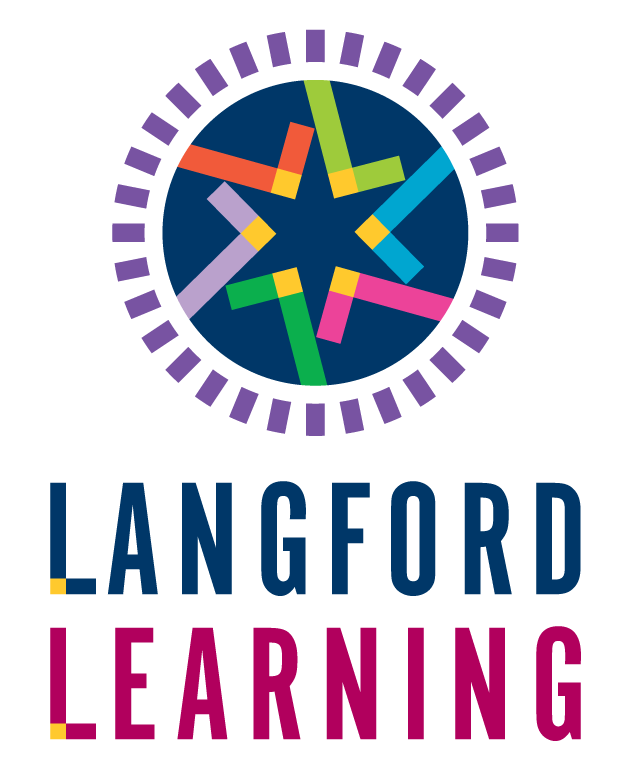The Importance of Operational Definitions: Deming in Education with David P. Langford (Part 12)
- David Langford
- Education, Podcast
- 0 Comments

This podcast was originally published on In Their Own Words for The W. Edwards Deming Institute
Operational definitions are clearly defined words, phrases, and concepts that everyone working together agrees to use in the same way. Making assumptions about words like “tardy” or “good” is a fast track to confusion and disengagement. In this episode, Andrew and David talk about operational definitions in education – for students, faculty, and administrators.
TRANSCRIPT
0:00:02.2 Andrew Stotz: My name is Andrew Stotz, and I’ll be your host as we continue our journey into the teachings of Dr. W. Edwards Deming. Today, I’m continuing my discussion with David P. Langford, who has devoted his life to applying Dr. Deming’s philosophy to education, and he offers us his practical advice for implementation. Today’s topic is operational definitions for life and learning. David, take it away.
0:00:30.5 David Langford: So, hello Andrew. And so today, I was thinking about the concept that Deming offered to the world could be very profound, and that’s why he called it profound knowledge about looking through stuff and deep and it can see… Seem kind of overwhelming, but at the same time, some of the best concepts or ways to think about things are really pretty simple, actually, and amazing, if you adopt just a few principles consistently and really get it in your psychic about how to operate, it can make life so much easier either for your own children or if you’re a teacher in school or administrator or whatever, you might be in education… So one of those concepts is the idea of operational definitions. So one of the elements of profound knowledge is systems thinking or appreciation for a system, and so you have a system whether that be a classroom or maybe you’re taking your own children on a summer vacation or whatever it might be, that in itself is a system as well. And a lot of the dysfunction that we deal with, especially in schools, actually is coming from the system itself. In fact, Deming talked about that 94% to 98% of the problem can be systemic, right? And the other 1% or 2% is probably special cause variation.
0:02:21.0 DL: So how do we go about making the common cause variation the norm? [chuckle] Now, in schools, what I was taught as a teacher was how to manage dysfunction. Nobody ever taught me how to prevent dysfunction, I sort of had to figure that out over time, that’s where you get experience, and… But how do you actually prevent dysfunction, behavior dysfunction, learning dysfunction… Whatever it might be that you’ve got going on? Well, one of the simplest ways is to take a look at what you could do with operational definitions, so what do we mean by that? Operational definitions, basically just defining, how are we going to operate? So I’ll never forget when I was… I think it was about fourth grade, I’d come in early from lunch and I remember I was sitting on the heat register on the side and the bell rang, and I jumped up and ran to my seat, and just as the teacher came in, seeing me run to my seat, and she pulled me out and I got into really super big trouble over that, et cetera, that because I was running in the classroom, okay. So there is a place where you could start to think about operationally defining about where do you want people to be when the bell rings? Something so simple as that, or if you have people late to school in the morning, well, what does that mean? What do you want them to do? Where do you want to be? How can you operationally define it? In the operation of what’s going on, how are we gonna define that?
0:04:17.9 DL: I remember when I first started down this pathway and started thinking about things, I asked about 20 different teachers, I said, “What does on time mean to you? Just pick a card and write that down.” Well, we got 20 definitions, and some of them were really good, really excellent and well thought out, and I want people in the room, in their seat with their writing utensils and whatever it might be, but when you start thinking about it in a school with a staff of 20… And if you’re a student in that school and you’re encountering these 20 different individuals with 20 different operational definitions of being on time, that’s likely to cause variation in the system, right? And even from, say, one classroom, and you move to the classroom across the hall, if you could eliminate some of that variation, you’re gonna eliminate some of the dysfunction. You know, what do we really want? But it starts to get into… Deming talked about… One of the elements of profound knowledge was understanding psychology.
0:04:38.4 DL: Well, it’s the very same thing in the school, so if I’m gonna work together with all the other teachers in the school to come up with a common definition of what is on-time performance, or what does that look like, I may have to give up on some of my pet peeves about what I want, right? So that we end up with a very common definition of what goes on, and why would I do that? Well, because if I do that, chances are I’m not gonna be spending my time dealing with a lot of dysfunction. We’ve got an operational definition of what this means, and it’s the same thing with a paper that you might write or… I remember even in college, many different professors had different criteria for how a title page should be and how it should be spaced and what it should be like and how it should… And if they just as a university gotten together and said, “Hey, at this university, here’s a very common way, it’s very common in life. Everybody should have a title page which you’re gonna hand in the paper and it’s gonna look like this”. And…
0:06:46.3 DL: You then… So as a student, you wouldn’t have to go from professor to professor to professor and learn a different strategy every place you go. So it’s that working together to create common definitions that creates function within a system. And why would we wanna do that? Well, as a teacher, I don’t wanna deal with all the dysfunction. [chuckle] My job was, I wanted to teach business applications or computer technology, or I wanna teach music or… I don’t wanna have to deal with all the stuff that happens on a daily basis. Well, one of the ways to do that is work together to create operational definitions for the good of everyone in the system.
0:07:34.3 AS: And one question I have about that is, is an… Sounds like half of the benefit of an operational definition is agreeing what are not our operational definitions for that particular thing. If you say that 20 people have their opinion, then you have a discussion about that, and everybody agrees that, Okay, we’re not gonna do all of those. And, okay, our operational definition may not be the best, and we could change it later. That’s actually… That’s less important than the idea of constantly communicating different operational definitions, or that’s a… Different definitions from people. Would you say that that’s half the value of it?
0:08:18.9 DL: Yeah. Yeah, absolutely. But it takes this thinking, systems thinking for everybody in an organization, whether you’re talking about a business or schools or whatever you might be thinking about, to have a common definition of what’s happening. Even with my own children, we have five children, my wife and I thought we were so clever one year, it’d been snowing like crazy, and for months and months and months. And so we set up this whole trip to go to Disneyland. And we didn’t tell anybody. We just got up one morning like, We’re gonna go to school and… And we… My wife gave everybody a card and said, “We’re leaving. We’re getting out of here. Are you tired of the snow?” And everybody’s like, Yeah, yeah, we’re getting out. Well, where are we going? And it was a big surprise and… So I don’t know. But, yeah, we got everybody there and we’re going to all these places, Knott’s Berry Farm and Disneyland, and we’re doing all this stuff and everything. And I noticed about the third night at dinner time, everybody’s just kinda depressed. And my wife and I were really frustrated that, What are you… Why are you guys so depressed and everything else? Well, this is all great and everything, and it’s fun and everything, and… But we just wanted to go to the beach. ‘Cause we live in Montana and we don’t have beaches, and they’d never seen the ocean, and…
0:09:45.2 DL: So if we’d just spent a little time operationally defining ahead of time, what do we wanna do in our trip and what would be the most fun thing to do, etcetera, we probably could have saved thousands of dollars of doing stuff that we thought people wanted to do, but instead…
0:10:01.6 AS: And, David, you and your wife would have been sitting in comfortable chairs in the sand…
0:10:07.0 DL: That’s right.
0:10:07.1 AS: Relaxing, rather than…
0:10:09.3 DL: Chasing people around, so…
0:10:10.4 AS: Yeah. Another question I have is, say, Okay, what do you do with a situation, I’m thinking about, you’re a leader of a school, and you come in, you go, We’re gonna set operational definitions. And then you’ve got all these people like, Oh, that just sounds like engineering, it sounds like a business, and we gotta get all of this and everybody’s gotta do the same thing and we gotta all… And you’re definitely gonna get a lot of people that say, No, we need variety, and we need all this creativity and that type of thing. How do you draw that line between that tension there?
0:10:41.1 DL: Yeah, you’re exactly right. We do wanna promote creativity and we do want to have things different. But I’d much rather have creativity in my history class and kids being very creative around history versus being creative around common practices within the school. And it’s not like you can actually, like you said, you’re… Let’s say you’re an administrator coming into a new school, that you can just sit down and just operationally define everything you wanna operationally define. Doesn’t really work like that. It’s more of a living document or a living way to be, right?
0:11:16.6 AS: Yup.
0:11:19.1 DL: So as you start to see, when… It’s often talked about with Deming’s profound knowledge, it’s like putting on a different pair of tinted glasses. You start to see the world and you start to see everything differently. Well, this is one of those things. As soon as you put on these… These glasses and start to think about operational definitions, you start to see all the kinds of places, dysfunctional places where operational definitions would be great. And basically, it means, How do we agree to operate? So one of the ways that you get rid of the resistance to operational definitions is getting people to agree to operate in a certain way. And on my consulting business, I’ve got several different tools and practices of ways to do that, how do you quickly get people to agree on something. But the bottom line is, when you’re involving them in the process of setting an operational definition, they’re much, much, much less likely to not wanna do it in the end, right?
0:12:29.2 AS: Right, right.
0:12:30.4 DL: That’s much different than me just coming in as the administrator or whatever authority figure it might be, boss, teacher, administrator or whatever, and I just start telling people, This is the way it’s gonna be. Well, if you start doing that, you’re gonna have resistance.
0:12:47.5 AS: Yeah. Yup. So then I’m…
0:12:49.2 DL: And then you go to spending all your time dealing with the resistance.
0:12:51.1 AS: And I’m… I guess what I’m taking away from what you’re saying is that maybe if that administrator was coming in and he’s facing all kinds of problems, whether it’s tardiness or whatever, that maybe he works with his team to say, Let’s identify our top five problems that are causing us the most variation in our outcome, and let’s get some definitions around these things, we don’t need to define everything that’s happening, but these are things that if we can work on these they can improve our outcomes, and that to me sounds like he’d win a lot of or she would win a lot of support because people are struggling dealing with all these things all the time, like well, Mr. Jensen says that five minutes late is not late. You said it’s late, and I don’t care whatever, I don’t wanna deal with that.
0:13:40.0 DL: And then you got a battle and then you’re just dealing with their resistance instead of dealing with the system itself and things that are in vogue now, like standards-based learning. Well, I’ve talked to different schools, nobody can define it clearly. Nobody can even define it within a district, they all agree that they would like to go forward with that, but there’s a good example, if you wanna introduce something or move forward with something and get people on board or committed to doing stuff, hey, let’s start operationally defining what is standards-based learning or standards-based grading, and how can we get some clarity around these common terms about what we have. It’s also something for the future. So you got a new employee, you’ve got new teachers coming in, whatever, hey, I’m gonna hand them this document that defines… Okay, we’re doing standards-based grading here. Now, it may not be the same exact definition of what you thought about where you came from before, but here’s how we think about it, and you could bring new knowledge and creativity to this to help us refine our definitions of what are all these things under this one concept. And so to me, that’s how you get continual improvement. It’s not…
0:15:08.8 AS: I guess that is a type of training to say, Okay, we’ve found that these… Once we understand these things, that if you can understand these things, now you’re gonna be able to bring a consistency to the students that is gonna be valuable. One last question for me on this is that, let’s just say that the kernel, the core of learning is that interaction between the child and the book and the teacher, and the process of going through this discovery, which I’m wondering, when we look at operational definitions, again, someone may say, you’re just trying to put rules about all of this stuff, or are you saying that there’s a lot of outside things that we’ve got to resolve so that we can have more time for this real quality learning experience, or are you saying that we even wanna have operational definitions within how we’re doing all that learning?
0:16:06.6 DL: Yeah, absolutely. So you mentioned the term discovery, I have no idea what you’re talking about. [chuckle] What are you gonna tell a third grader? Well, we want you to do discovery. What the heck is that? What is discovery and what’s the process of discovery that you want them to go through? Well, when you go to the library and randomly grab three books, spend a little time thumbing through them, there’s a process to discovery. You don’t just leave it up to the randomness of people that already know how to do that, right? Your job is to optimize a system, so you want everybody to be able to do discovery-type kinds of things, and when somebody comes up with a new innovative way that they do discovery, say in science or something, okay, let’s hear that and let’s try that, let’s do maybe a miniature PDSA and let’s have everybody try it and see what we learn from that and see if this is a better process for the process of discovery. And there you go.
0:17:16.0 AS: So then for the listeners and viewers out there, there you go, David called me out right there. I’m coming out with vague statements without providing operational definitions, and there is the benefit of it. And I was just thinking about what does discovery mean to me? I think it means something different from what it means to others. As a financial analyst, the way I did discovery is I find the strongest opponent to this idea and the strongest supporter to this idea, and I try to get them on the phone.
0:17:45.6 DL: But there’s a process right there, that’s a process of discovery.
0:17:48.9 AS: Yeah.
0:17:50.4 DL: And it’s not like you have to be locked into a definition, you could have five or six different processes of discovery that you want people to choose from, or if you’ve got your own, let’s define what that is. Right?
0:18:11.4 AS: Yeah.
0:18:11.9 DL: But as soon as you start to do that, you start to get clarity and then you start to see, Well, if it doesn’t work, but we defined it well, let’s go back and re-look at our definition and redefine it. And you could define things just in a paragraph, in words, in sentences, but you can also define things with flow charts, process charts, ways to look at things, those are also operational definitions.
0:18:39.8 AS: So this brings me to… I think my closing thought on it is, it brings me to the idea of PDSA, it brings me to the idea of how do we gain knowledge in our company or in our school, let’s say, and how do we make sure that we don’t lose knowledge, like we’re constantly losing… We understood that before, but nobody uses the manual anymore, and those people left, and now we’re back to…
0:19:08.1 AS: Going back to the same process and what I… The breakthrough I had when I really started to understand what Deming was talking about, was that if you’re constantly going back and looking, Okay, what is discovery? Okay, we’ve just taught it… This definition, we’ve just taught it for a year, what did we learn, how can we improve it? Oh, there’s three different ways that we now see and then how do we learn and how do we continue to modify that definition until it’s a clear definition in our organization and what that does in a business is it builds a competitive strength that your competitor doesn’t have because they haven’t been rethinking and improving their knowledge and sustaining that knowledge and bringing it up to another level, and that is the concept of competitive advantage in the business world that I just think is such a breakthrough, and I would say that Toyota is probably the one that really built so much into their “just in time” and their Lean and all of that type of stuff, and that they built a whole system of brilliant knowledge within it. How would you relate that back to the classroom and school and organization?
0:20:12.2 DL: Well, it’s… You’re basically doing the same thing in a classroom, if you’re a teacher in a school, you’re getting a competitive edge, just so to speak, not that you’re competing against anybody else really, but you’re optimizing things in a way. I just remember after a few years, I’d have teachers come in to visit my classroom to see what was going on and they couldn’t understand what was happening because they’d say, Well, you’re just not dealing with stuff that I deal with every day. And a lot of that came from working with the kids when they came in and we’d set operational definitions about when do you need to be in your seat? There’s times that, yeah, you need to be in your seat and there’s times that, no, that’s really stupid, you know what, I don’t want you in your seat and so let’s get some clarity right at the very beginning of the school year so that we’re not dealing with that all the way… All the way through the school year.
0:21:15.0 AS: Right, so let me try to wrap this up, we talked about a lot of stuff, but ultimately our topic was operational definitions for life and learning, we talked about how operational definitions can make your life easier. We also talked about the idea of understanding systems and systems thinking, and that a lot of dysfunction is coming from the system and operational definitions can help you try to actually prevent that dysfunction or eliminate it because now those things are clear. And also, what I heard from you too, is the idea that different definitions, if you allow many different definitions to go on, you are adding variation to your system, and therefore you’re bringing trouble for yourself, and then also we got into this discussion about what is discovery and what is the process of discovery? And then we came up with the operational definitions that we could have two or three of them, but ultimately that we discuss it, we work on it, and then if we can build it into our organization, then it’s something that we’re building step-by-step, competency in what we do. Is there anything else you would add to that?
0:22:32.6 DL: Yeah, in one of the podcasts we did, we spent a lot of time on optimization, and this is around that concept, how do you optimize a class for peak performance, meaning you’re getting the highest number of students to the highest level possible within the shortest amount of time, you’re optimizing what’s going on within that. Well, one of the ways you do that is setting operational definitions, working together with people to set those definitions. I guarantee you, you will see performance go up as a whole, which is your job.
0:23:08.2 AS: Fantastic. Well, that was a great episode with a lot of stuff. David, on behalf of everybody at the Deming Institute, I wanna thank you again for this discussion and for the listeners, remember to go to deming.org to continue your journey. Listeners, you can learn more about David at langfordlearning.com and this is your host Andrew Stotz and I will leave you with one of my favorite quotes from Dr. Deming, are you ready? “People are entitled to joy in work.”









